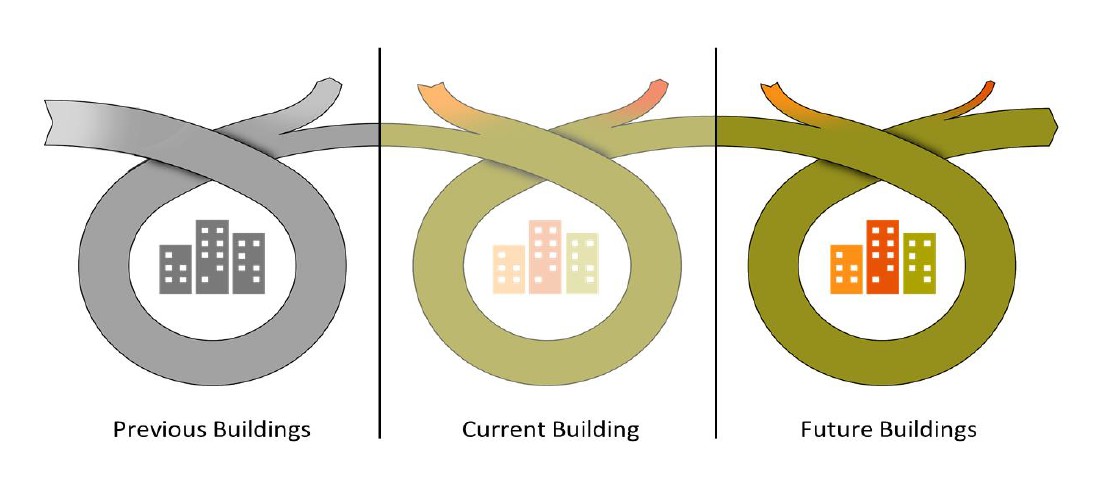The Constructing Excellence Offsite Manufacturing & Technology Group met on 13 August to consider circular economy, whole life approaches and MMC. As we move to a more sustainable and net zero carbon society we need to consider the whole life implications of our buildings and assets. As MMC makes it easier to design and construct buildings and assets we take a look at the whole life aspects of this and how MMC can contribute to a circular economy.
We were joined by Dr Flavie Lowres from BRE who gave an insight into the Buildings as Materials Banks, an EU funded project that considered how we can move from a Maintain, Refurbish, Transform built environment model to a Maintain, Reuse, Refurbish, Upcycle / Recycle Model. Joanna Clark from SPECIFIC considered the relationship between Active Buildings and whole life values and the approach used on the Active Office.
Client Demand
Group members see whole life approaches as fundamental to the future and key to understanding and demonstrating the value the industry brings in a sustainable way. Members reported that clients are increasingly being driven by a higher purpose taking longer-term, more sustainable views and this is increasingly reflected in tender documentation and frameworks. Indeed, the Construction Innovation Hub’s Value Toolkit is driving towards procuring on long term value and outcomes.
MMC and Sustainability
There is a strong correlation between MMC and delivering quality and sustainable outcomes, often carbon and energy savings have been delivered as a biproduct of MMC approaches. This was the case in SEISMIC 1 where significant carbon savings were delivered through a project where the primary focus for innovation was on developing a platform based approached and standardisation.
Supply chain
Participants were keen to understand the role of supply chains, particularly how these approaches can be embedded in existing supply chains. A key element of the supply chain that is often ignored is the demolition sector. Flavie is now participating in a follow-on a pan-European project CIRCUIT that aims to understand how a circular economy around building materials in cities can be established. Understanding the deconstruction process is key to understanding how materials and components can be used to their highest possible value.
Products
From a circular economy perspective, it is critical to understand how buildings are going to be used and how they can be adapted and re-used. This allows designers and manufacturers to optimise the specification based on making things to last as long as possible where they need to and make it easier to re-purpose where that is not the case.
Data – Materials
Members were keen to understand the role of data and BIM in enabling whole life approaches. Existing BIM models are limited in their understanding of materials in buildings. Data and understanding the exact location of materials was a core element of the BAMB project which considered the residual value of materials and also the importance of knowing exactly where materials are should they need to be removed in the same way as e.g. Asbestos.
Data – Performance
A major issue faced by the Active Office project was the lack of performance data on new technologies and the conservative approaches taken by QS firms for the running, service and maintenance costs of new technologies. These assumptions do not always represent an accurate reflection of innovative, low-carbon technologies. Data and evidence on actual performance is needed to feed into these models and back up manufacturers claims on performance.
Simplicity
Participants were concerned by the complexity and contradictory nature of some of the information out there. A need was identified to find ways to remove the complexity and help all those involved more embrace whole life approaches and embed sustainability and whole life approaches into projects.
Next Steps
The group will be holding an online discussion session in September to build on these discussions to get group members perspectives on MMC and sustainability and understand how we can move this forward.
Links to presentations

